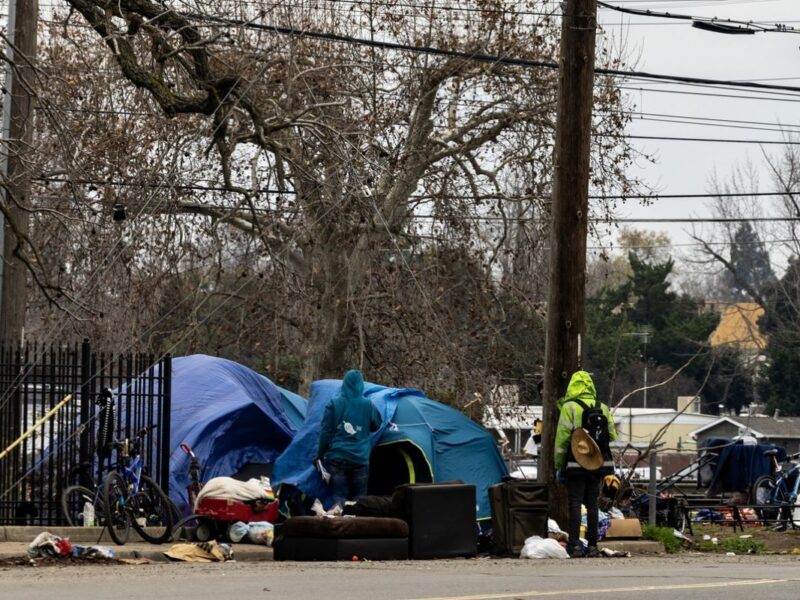Editor’s note: If you want to help Loki, please visit her GoFundMe page.
So here I am, once again performing my New Year’s Eve ritual.
Long ago, I learned this old superstition: whatever you do on New Year’s Eve, especially at midnight, sets the pace for the whole year ahead. I know that the new year is nothing more than hanging a new calendar on the wall (assuming you have a place to hang one), but there’s something hopeful that seems to come with the artificially constructed idea that a new year will be a fresh start and a “clean slate.”
With that in mind, since I became a writer for Invisible People, I have spent every December 31st working on my biweekly column. It doesn’t mean I will finish writing it tonight; it just means I have it in progress.
I remember the “good old days” when New Year’s was a far more joyous celebration. I was always booked on New Year’s Eve and made decent money that night. Afterward, I’d go to a friend’s and ring in the new year with people who were worth my time.
However, as we got into 2011, it felt like the vibe changed entirely. While I had long since been forced to give up the career I had been building (due to the development of chronic illness), there was still a feeling of optimism for the year to come on each New Year’s Eve before 2011.
I cannot remember the last time I felt genuinely optimistic about anything. With each new calendar, no new hope has been expected. My intuition was spot on as the ball dropped to ring in 2011, and my life has descended ever lower into horror every year since.
New Year’s Eve is when we reminisce about the past and theoretically look forward to the future.
Still, I am braced for the worst in 2024. It feels like most people associated with the homeless community are, too. Life has taught me never to expect anything good or for it to work out well. I am always braced for the next horror. This time, much of the world is braced, too.
Between the current economic issues and the unrest and war worldwide, plus the threat of massive unemployment and homelessness increasing due to several factors, including artificial intelligence, most people I speak with are dreading 2024, as I am.
Before writing this, I took advantage of being indoors tonight. I made a simple but nice meal and decided to watch something that would comfort me.
So, I chose to watch the extended cut of the 1979 movie Superman, one of my adoptive father’s favorite movies. I’d watched it with him many times over the years, but he never got to see this version with 40 or so extra minutes, including entire scenes I’d never seen before. I cried because my father didn’t get to see this, and he would have loved it so much.
Spoiler Alert! I won’t completely ruin it for anyone who wants to see this extended version by giving you the “who said it, why, or where,” but this question is posed in the movie, which I’d never heard in previous versions. It tied right into my points about New Year’s Eve and exploring the past.
The question was, “When does a man’s obligation to those around him exceed his obligation to himself?” The question is never actually answered in the movie.
When I heard this, I stopped, went back, listened again, and typed the quote into this essay. It could be no coincidence that I chose to watch this version of this film on the night that question was posed because, you see, that question has haunted me my entire adult life.
When I mentioned it to a friend who’s known me a long time, they said, “Oh wow! That must have really hit home.” Indeed, it does.
We can modernize the language: “When does a person’s obligation to those around them exceed their obligation to themselves?”
Back when I was granted the opportunity of a lifetime, I was only 24 years old. I certainly didn’t have a lifetime of experience behind me with which to make a good decision. I also had no time, not even overnight, to think it over. I was forced to make a decision that would impact my life forever.
Do I grab this priceless opportunity for myself (which, even then, I realized was once in a lifetime), or do I reject it because I felt obligated to my roommate with Down Syndrome (who couldn’t survive without me helping him with many aspects of keeping a household running)?
I chose to reject the opportunity, which would have involved me traveling throughout Europe for a long time while on tour. It would also mean leaving him alone, which would have given his evil, abusive family the excuse they were waiting for to sell his house and move him into an institution.
In the end, even though I stayed, I only made two additional years in his home possible before his family did exactly what we feared. I became homeless for the second time in my life. True to his word, once separated, he died shortly after. He said repeatedly (and I have it on a recording, in fact) that if we became separated, he would not go with his abusive family but instead go to heaven with his mother.
So, what did I achieve? I destroyed my own life and my future and only made two additional years possible for him in his house.
His family is beyond wealthy, so they didn’t sell the house for financial reasons. The house had no mortgage and had been in his family for decades by then. They could have let him live out the remainder of his life in that house, and he was paying many bills. I could have gotten people to look after him while I was gone and built a great career for myself.
Many of us, especially women, end up homeless because we were caregivers, wives, mothers, or in some way in service to others. When those situations ended, we had nowhere we could afford to go and no viable skills. In my case, I became chronically ill in my late twenties, and it progressed into the rest of my life.
I am incredibly grateful to my good friends, as I have no family. And I am eternally grateful to Invisible People for my column and to my readers who became friends. I couldn’t make it one day without the help. Still, here I sit, regretting the past, mourning my life, and dreading the impending doom of 2024, starting with the ongoing threat of losing this room and having a van that has been out of commission since September 2023, even after $1800 worth of work since October 2023.











